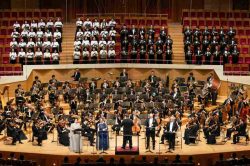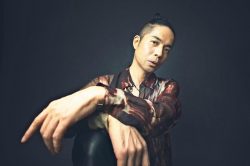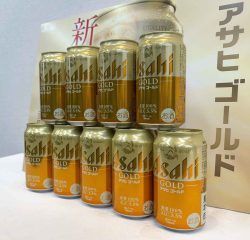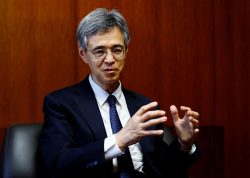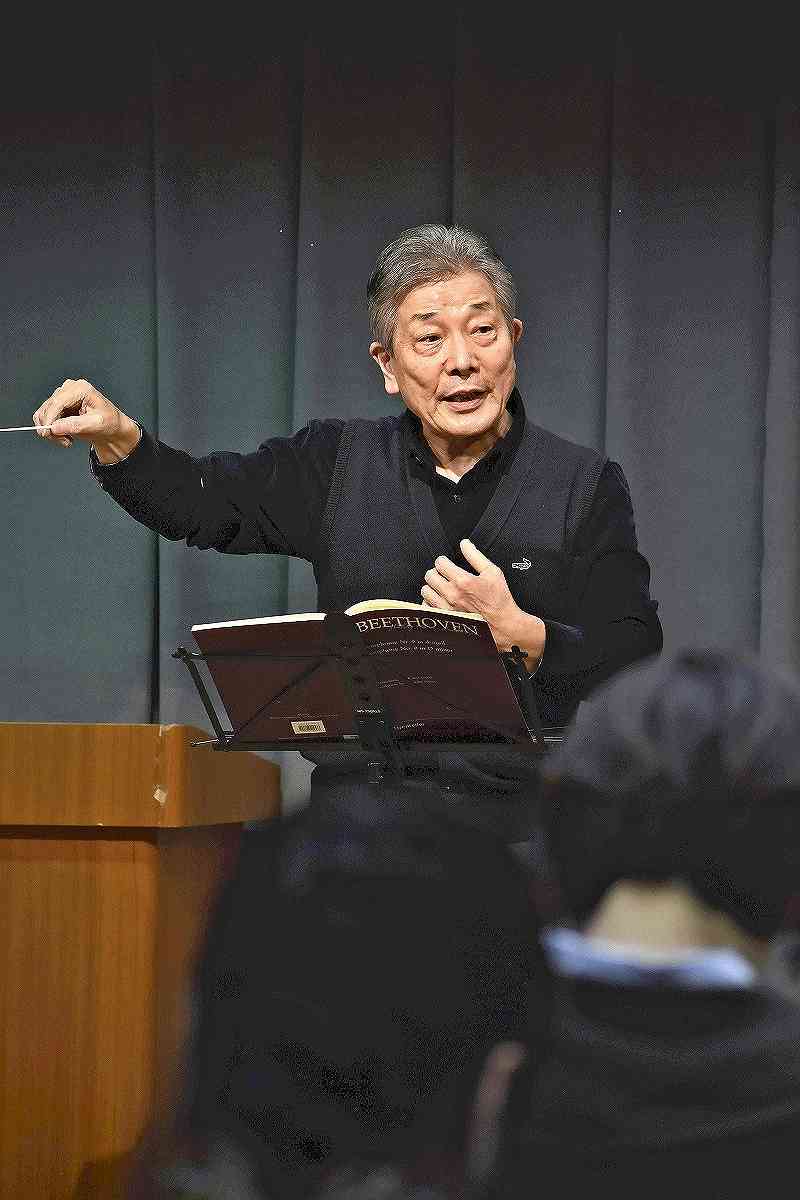
Toshihide Koroyasu conducts the Kita-Harima Daiku Gasshodan choir during a practice session in Nishiwaki, Hyogo Prefecture, on Nov. 19.
13:12 JST, December 13, 2022
Concerts featuring Beethoven’s Symphony No. 9 are a popular year-end cultural event in Japan.
But for Toshihide Koroyasu, a vocalist and specially appointed professor at Naruto University of Education, a performance of the popular work in his hometown in Hyogo Prefecture scheduled for later this month has a special meaning.
Koroyasu, 69, sang “An die Freude” (“Ode to Joy”) 33 years ago at a concert in what was then East Germany, celebrating the fall of the Berlin Wall, and will lead the Hyogo event as a conductor with hopes for peace as the war in Ukraine rumbles on.
On Christmas Day in 1989 — following the toppling of the wall between East and West Germany — the Schauspielhaus music hall (now Konzerthaus Berlin) in East Berlin was filled with people singing the final part of the symphony. Performers and singers from East and West Germany, the United States, Britain, France and the Soviet Union came together to perform under the baton of world-renowned conductor Leonard Bernstein. Koroyasu was among the singers at that historic concert.
A native of Taka in Hyogo Prefecture, Koroyasu moved to what was then West Germany in 1982 to study singing after graduating from Tokyo University of the Arts. Amid the Cold War, he joined a prestigious choir and felt the tragedy of division every time he visited the East — then drably colored and reeking of coal — for a concert.
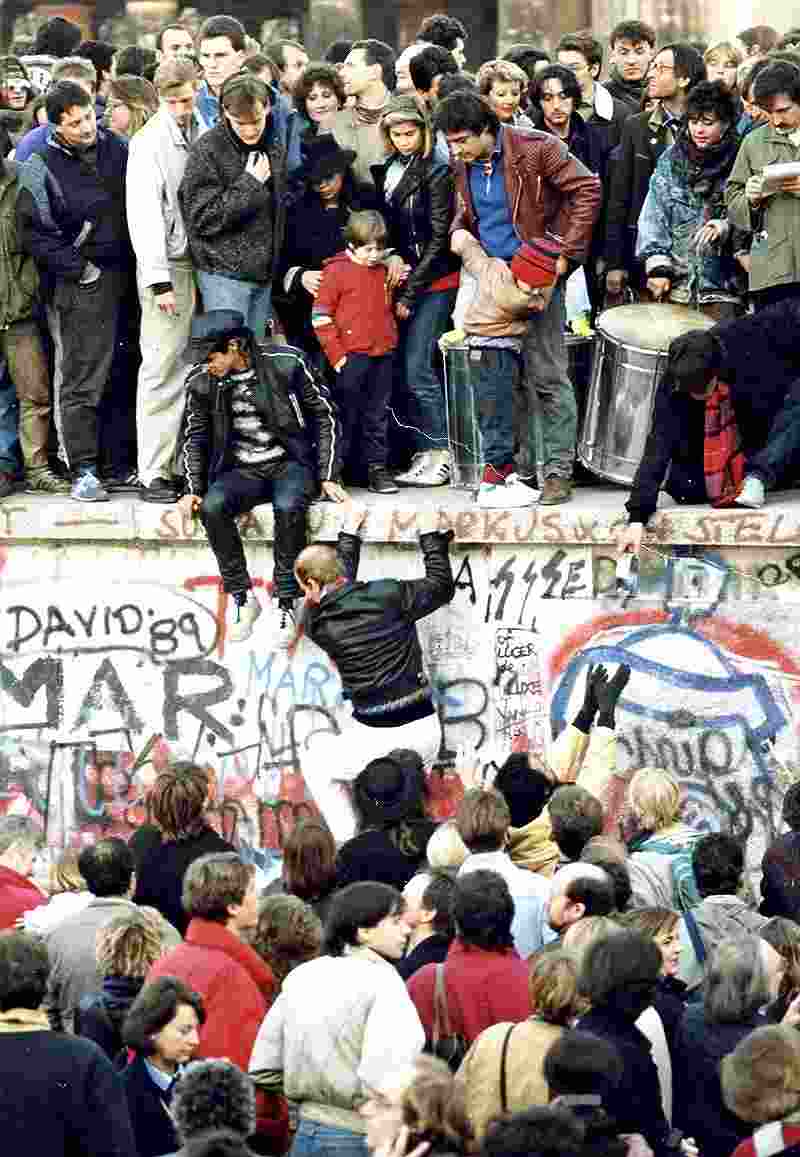
People gather at the Berlin Wall on Nov. 10, 1989.
That all changed in November 1989. A high-ranking East German official erroneously said that East Germans would be granted freedom to travel, prompting a large number of people to try to enter West Berlin. They gathered at the wall’s checkpoints, requesting the opening of the gates.
Images of people climbing onto the wall and wielding pickaxes were seen around the world. The United States and the Soviet Union declared the end of the Cold War in December that year.
Koroyasu said he cannot forget the sense of exaltation he felt at the memorial Christmas concert. Bernstein asked the choir to alter the lyrics by replacing the word “Freude” (joy) with “Freiheit” (freedom).
Hearing thunderous applause from the audience after the performance — later dubbed an “ode to freedom” — Koroyasu recalls thinking: “History has changed. The world will surely be peaceful.”
In 1991, after the end of the Cold War, Koroyasu returned to Japan and taught singing at Naruto University of Education.
While there, he was struck by a curious finding: The first performance of Beethoven’s 9th symphony in Asia reportedly took place in Naruto.
During World War I, Naruto hosted a camp for German prisoners of war who had surrendered to Japan in Qingdao, China. Toyohisa Matsue (1872-1956), a prison camp commander who was generous toward the POWs, allowed them to form an orchestra. The musical ensemble subsequently performed the symphony in June 1918, which was reportedly the first time in Asia.
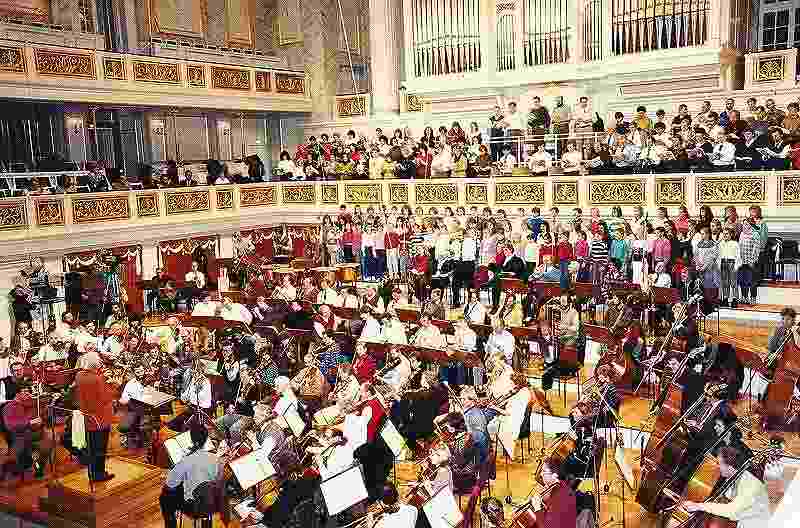
Leonard Bernstein, left foreground, oversees a memorial concert rehearsal in former East Berlin in 1989.
Ever since, Naruto residents and others have held yearly concerts featuring the symphony with the aim of passing on a slice of history to future generations. As a singer and conductor, Koroyasu naturally became involved.
Koroyasu has also participated in related concerts in Germany and Qingdao. Having experienced the magical bonds of friendship formed during wars, Koroyasu realized that music has the power to bring people together.
On Dec. 18, Koroyasu will visit his hometown to conduct the Kita-Harima Daiku Gasshodan choir in a performance of the Beethoven’s symphonic masterpiece.
After witnessing people’s jubilation over the fall of the Berlin Wall and learning about the symphony’s links with Japan, Koroyasu is keen to convey certain messages through the event.
During a practice in mid-November, Koroyasu told the choir members: “There’s a saying that, when the cannon roars, the goddess of art becomes silent. In this age when missiles fly and cannons are fired, it’s necessary for everyone to be united in music.”
Beethoven is said to have composed the symphony in the last years of his troubled life based on the phrase, “Go through anguish, then on to rapture.”
In line with the lyrics, which say all people shall be siblings, Koroyasu hopes he can convey the joy of music and a wish for peace.
Top Articles in Culture
-

BTS to Hold Comeback Concert in Seoul on March 21; Popular Boy Band Releases New Album to Signal Return
-

Director Naomi Kawase’s New Film Explores Heart Transplants in Japan, Production Involved Real Patients, Families
-
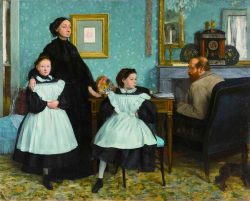
Tokyo Exhibition Offers Inside Look at Impressionism; 70 of 100 Works on ‘Interiors’ by Monet, Others on Loan from Paris
-
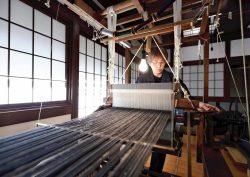
Traditional Japanese Silk Hakama Tradition Preserved by Sole Weaver in Sendai
-

Exhibition Featuring Yoshiharu Tsuge’s Manga World Underway in Chofu, Tokyo; Unique, Surreal Works Draw Steady Crowds
JN ACCESS RANKING
-

Producer Behind Pop Group XG Arrested for Cocaine Possession
-

Japan PM Takaichi’s Cabinet Resigns en Masse
-

Man Infected with Measles Reportedly Dined at Restaurant in Tokyo Station
-

Israeli Ambassador to Japan Speaks about Japan’s Role in the Reconstruction of Gaza
-

Videos Plagiarized, Reposted with False Subtitles Claiming ‘Ryukyu Belongs to China’; Anti-China False Information Also Posted in Japan



